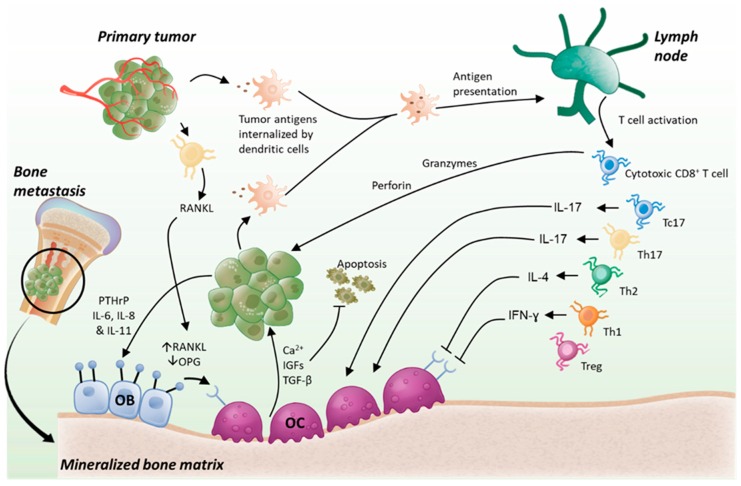Figure 3.
The role of T cells in bone metastasis. Antigens from dead cancer cells are taken up by dendritic cells to be presented to T cells in lymphoid organs such as the lymph nodes. Primed T cells can then home to the tumor site. While cytotoxic CD8+ T cells can induce the apoptosis of cancer cells, local factors, such as bone-derived TGF-β or bone marrow Tregs inhibit this cytotoxic response. TGF-β is released due to the bone resorption by osteoclasts (OC) caused by cancer cells cytokines (i.e., PTHrP, IL-6, IL-8, or IL-11), and the subsequent expression of RANKL by osteoblasts (OB). T cells that produce IL-17 (Th17 or Tc17) or RANKL (Th17) can also increase bone resorption and support the development of bone metastases, while IFN-γ and IL-4 derived from Th1 and Th2, respectively, can inhibit osteoclast formation and potentially limit bone metastases.

